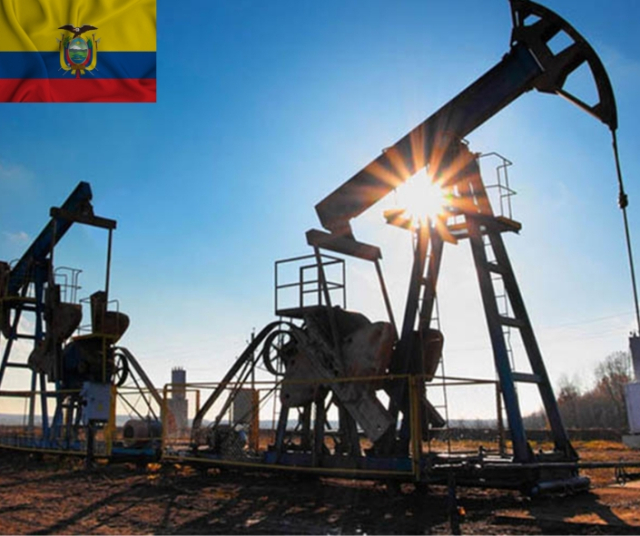Ecuador, a country located in the northwestern region of South America, is known for its rich biodiversity, vibrant culture, and diverse landscape that spans from the Amazon rainforest to the Galapagos Islands. However, another crucial aspect that has shaped the country's history and economy is its relationship with oil. In this article, we will explore the history of oil in Ecuador, its impact on the economy, environment and society, as well as the challenges the country faces in this area.
History of oil in Ecuador.
The history of oil in Ecuador dates back to the beginning of the 20th century, when the first oil discoveries were made in the Amazon region of the country. One of the first major oil fields was the Nueva Loja field, discovered in the 1960s in the province of Sucumbíos. This discovery marked the beginning of large-scale oil exploitation in the Ecuadorian Amazon.
Economic impact of oil.
The economic impact of oil in Ecuador is significant and has been a driving force in the country's economy for decades. Since its discovery and exploitation in the first half of the 20th century, oil has played a crucial role in the economic and social development of Ecuador, both as a source of substantial income and a driver of investment and growth in other sectors.
Ecuador is one of the main oil producers in Latin America and oil represents a considerable part of its exports and the country's Gross Domestic Product (GDP). The Ecuadorian oil industry has experienced ups and downs over the years due to factors such as international oil prices, foreign investment, and government policy. However, it remains a vital source of income and employment for the country.
Ecuadorian oil is extracted mainly from the Amazon region, where large deposits of crude oil are found. The exploitation of these resources has generated significant economic activity in the region, including the construction of infrastructure, job creation and the development of local communities. However, it has also posed environmental and social challenges, such as deforestation, water pollution and conflicts with indigenous communities.
Oil has been a crucial source of revenue for the Ecuadorian government, which relies heavily on oil revenues to finance its social programs and infrastructure projects. During periods of high oil prices, Ecuador has experienced significant economic growth and has been able to finance poverty reduction and social development programs. However, the fall in oil prices may have an adverse impact on the country's economy and public finances.
Dependence on oil has also made the Ecuadorian economy vulnerable to fluctuations in international oil prices. Falls in oil prices can negatively affect government revenues and lead to cuts in public spending, which can have repercussions on the social and economic well-being of the population.
In addition to the direct economic impact, oil has also had an impact on other sectors of the Ecuadorian economy. The oil industry has stimulated investment in infrastructure, such as roads and ports, and created employment opportunities in related sectors, such as construction, transportation and services.
Environmental and social impact.
Despite the economic benefits it has brought, the oil industry has also had a significant impact on the environment and local communities in Ecuador. Oil extraction has caused deforestation, pollution of rivers and soils, and has contributed to the loss of biodiversity in the Amazon. Furthermore, indigenous communities living in oil areas have suffered the negative effects of oil activity on their health, livelihood, and culture.
Challenges and controversies.
Ecuador faces a series of challenges and controversies related to its oil industry. One of the main challenges is finding a balance between oil-driven economic development and protecting the environment and the rights of local communities. Furthermore, the country faces the task of diversifying its economy and reducing its dependence on oil to ensure long-term sustainable development.
Policies and strategies.
To address these challenges, Ecuador has implemented a series of policies and strategies aimed at promoting responsible and sustainable oil development. This includes the adoption of stricter environmental regulations, the consultation and participation of local communities in decision-making related to the oil industry, and the promotion of renewable energy sources as an alternative to oil.
Future perspectives.
As Ecuador moves into the future, it is essential that the country finds an appropriate balance between economic development and the conservation of the environment and the rights of local communities. This will require a comprehensive approach that takes into account not only economic aspects, but also social, environmental and cultural aspects. With responsible and sustainable management, Ecuador can reap the benefits of oil while protecting its valuable natural heritage and promoting the well-being of its citizens.
Ecuador's relationship with oil is complex and multifaceted, with significant economic, environmental and social impacts. While oil has been an important source of income for the country, it has also posed significant challenges in terms of sustainable development and social equity. To ensure a prosperous and sustainable future, Ecuador must address these challenges comprehensively and adopt policies and strategies that promote equitable and environmentally friendly development.
